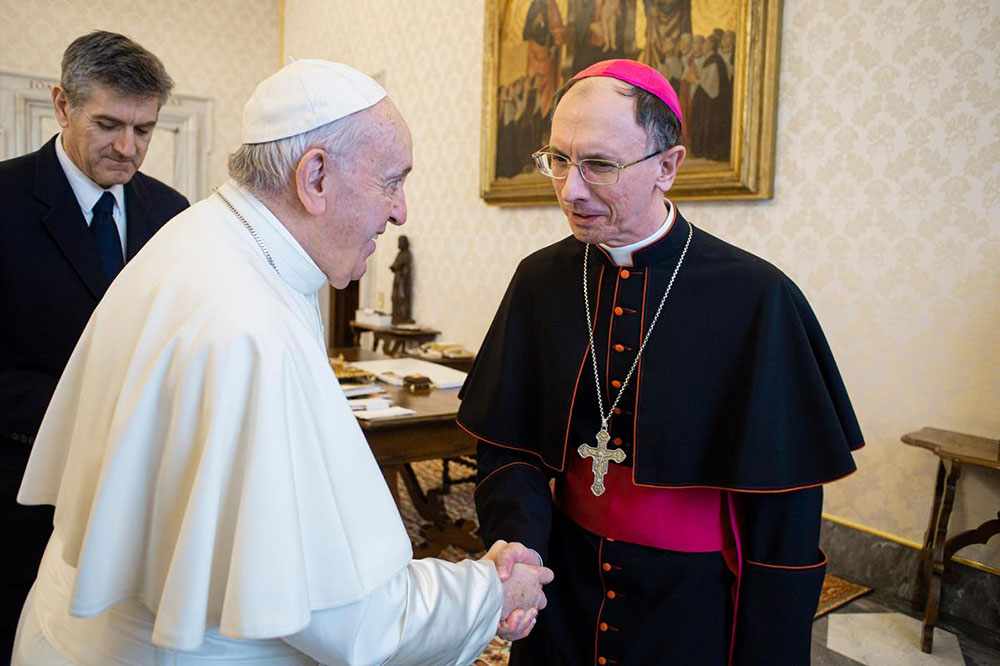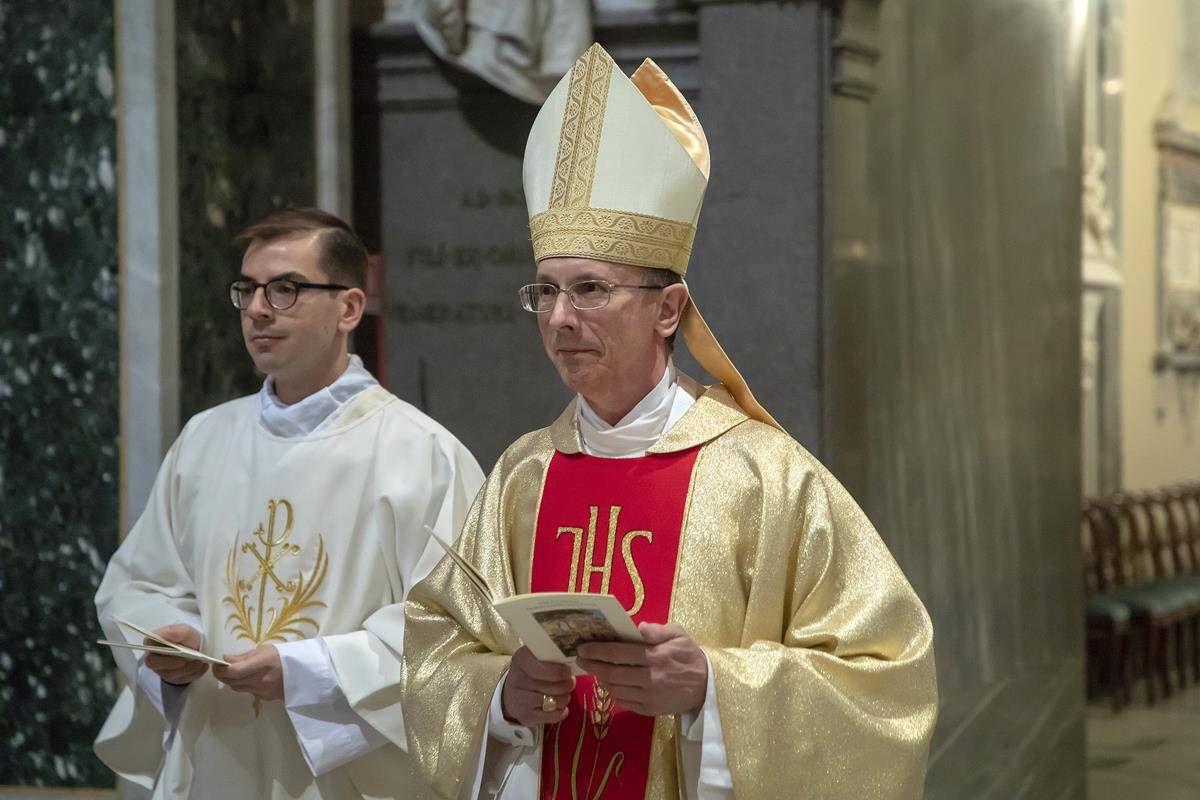 On our ad limina pilgrimage, we bishops had the opportunity to visit many offices of the Roman Curia. The Roman Curia is at the service of the Holy Father and the universal Church, as well as local dioceses.
On our ad limina pilgrimage, we bishops had the opportunity to visit many offices of the Roman Curia. The Roman Curia is at the service of the Holy Father and the universal Church, as well as local dioceses.
At the Secretariat of State, we bishops learned that the Vatican is very concerned about the climate of polarization that is currently present in the United States, but it was also noted that this polarization seems to be present in many other places of the world as well. In addition, the targeted persecution and murder of Christians in some areas of the world, as well as the persecution of any religious group, is of grave concern. Increasing threats to religious freedom here in the United States have also been a major concern of the U.S. Bishops’ Conference for some time now.
At the Dicastery for the Laity, the Family and Life, we were encouraged to pay special attention to our youth, and to work to strengthen marriage and family life which are facing tremendous challenges in our time. Regarding our young people, the Diocese of Charlotte will host a three-day meeting of bishops and priests of the Province of Atlanta in August to discuss Pope Francis’ post-synodal apostolic exhortation “Christus Vivit,” on young people, the faith, and their vocational discernment.
At the Congregation for the Clergy, we discussed the importance of building up strong fraternal bonds of friendship and support among the priests of a diocese. We also discussed the importance for seminarians to form a strong fraternal community among themselves, a fraternal community which will continue to serve them well once they are serving together as priests in the diocese. The spirituality of the diocesan priest is tied to the character of the particular diocese in which he is incardinated; the priest has the charism of permanence and service to the local Church.
At the Congregation for Consecrated Life, we discussed the importance of religious to live a common life in community as an essential part of the consecrated life.
At the Pontifical Commission for the Protection of Minors, we learned of the continuing efforts to bring the critical issue of sexual abuse of minors to the attention of all episcopal conferences throughout the world.
At the Congregation for Bishops, we discussed Pope Francis’ teaching on the death penalty. We also discussed the Holy Father’s post-synodal apostolic exhortation “Querida Amazonia,” and how this new document presents a great opportunity to extend and continue discussion of the encyclical “Laudato Si’,” on care for our common home. We heard of the pope’s strong plea for priests to volunteer for pastoral ministry in the Amazon, where there is tremendous need. On the subject of vocations to the priesthood, the prefect of the Congregation for Bishops, Cardinal Marc Ouellet, noted that where there is strong Eucharistic devotion, this gives rise to vocations to the priesthood.
At the Congregation for Divine Worship and the Discipline of the Sacraments, we were reminded that the focus of the divine liturgy is the worship of God, not entertainment. We were also reminded that Mass is to be celebrated facing the congregation. I had the opportunity to thank Cardinal Robert Sarah, the prefect of the congregation, for his new book “From the Depths of Our Hearts,” on priesthood, celibacy, and the crisis of the Catholic Church. The book will be a tremendous resource for bishops, vocation directors, seminary rectors and formators, and the whole Church in appreciating the gift of celibacy. The discussion engendered by this book will help our priesthood candidates to embrace the discipline of celibacy with greater understanding, and our priests to live faithfully the promises of their ordination.
At the Congregation for the Doctrine of the Faith, we learned of the many areas of competence of the congregation, and the
importance that we all must give to the accurate passing on of the faith.
At our meeting with the Holy Father, Pope Francis gave us bishops more than two hours of his time, in what was a genuinely friendly conversation among bishops about issues facing the Church. The Holy Father has the weight of the world on his shoulders. I promised him my prayers every day, for which he was very grateful.
The ad limina pilgrimage is not only about attending meetings, but there is also time for Mass every day, in addition to prayer and reflection. My prayers, of course, were for God’s continued blessings upon the Diocese of Charlotte, which I am privileged to serve. On the day of our visit when there were no meetings scheduled – Feb. 11, the Memorial of Our Lady of Lourdes – I took the opportunity to spend a good deal of time praying at St. Peter’s Basilica, the place which I had visited quite often when I was a seminarian student in Rome, and the place where I was ordained a deacon and also a priest.
Bishop Peter Jugis is the fourth bishop of Charlotte. He was among 15 bishops from North Carolina, South Carolina, Florida and Georgia who went on their ad limina pilgrimage to Rome earlier this month.
Read more: Pope shares with U.S. bishops and Bishops called to lead, serve with love, Bishop Jugis says.































